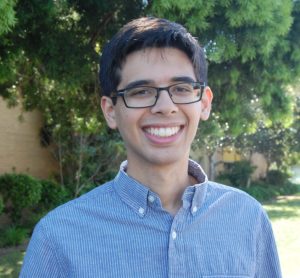ABSTRACT
Social and behavioral interventions are a critical tool for governments and communities to tackle deep-rooted societal challenges such as homelessness, disease, and poverty. However, real-world interventions are almost always plagued by limited resources and limited data, which creates a computational challenge: how can we use algorithmic techniques to enhance the targeting and delivery of social and behavioral interventions? This talk focuses on problems in combinatorial optimization and machine learning which underlie this question. Mr. Wilder will discuss robust optimization, information gathering, and decision-driven learning as tools for decision making under uncertainty, as well as applications of these ideas in public health settings such as HIV prevention among homeless youth.
BIO

Bryan Wilder is a PhD student in computer science at the University of Southern California, where he is advised by Milind Tambe. His research focuses on combinatorial optimization and machine learning, driven by applications to social issues such as public health. He is supported by a NSF Graduate Research Fellowship, and his work has been recognized with best paper and best student paper nominations at AAMAS.



